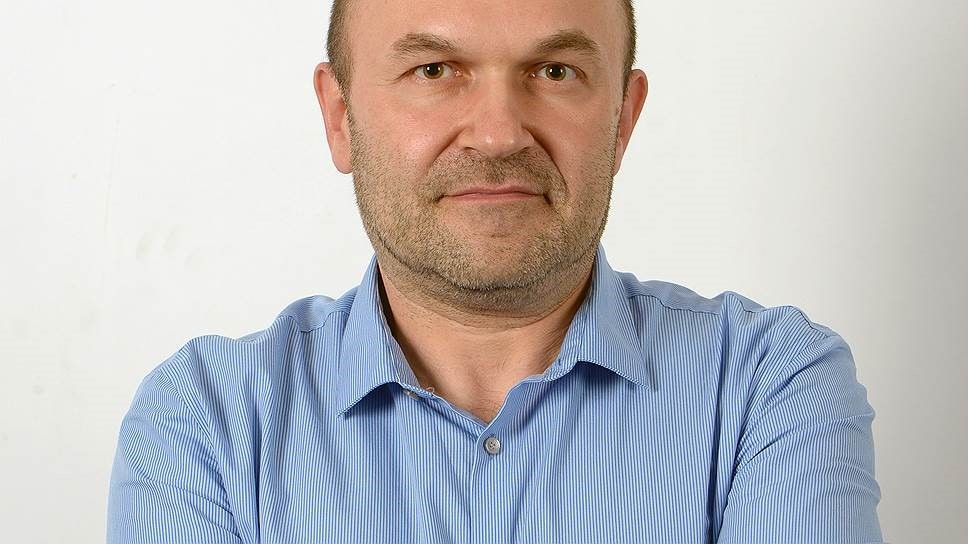In a recent article, columnist for the Russian daily Kommersant Maxim Yusin analyzed Russia-Iran relations. According to Yusin, Iran has "consistently acted" as a Moscow's "situational ally," but this "situational alliance" between the two countries in Syria is not nearly "as firm as it seems." He added that Moscow considers Iran a "capricious" and "unpredictable" partner, and that this could open a window of opportunity for President Donald Trump's diplomacy.
Below are excerpts of Yusin's article:[1]

Maxim Yusin (Source: Kommersant.ru)
"Washington Does Not Offer [Russia] Any Geopolitical Bargain That Could Make Up For A Possible Cooling Of Relations With Tehran"
"Moscow faces a difficult choice resulting from escalating tensions between Washington and Tehran. On the one hand, in many regional conflicts in the Middle East – first of all in Syria – Tehran has consistently acted as Moscow's situational ally. On the other hand, connections between Moscow and Donald Trump's administration are just beginning to take shape, and if in the very first serious crisis Russia fails to meet the new president's expectations and creates the perception of being an opponent rather than a partner, that will dash all hopes for normalization of relations between the two superpowers. For obvious reasons, Russia does not want to jeopardize its ties with Iran – especially when Washington does not offer it any 'geopolitical bargain' that could make up for a possible cooling of relations with Tehran, such as acknowledgement of the Kremlin's special interest in the post-Soviet territory, concessions in Ukraine, or easing of sanctions.
"There is another reason why it would be hard for Moscow to agree with Washington's position in the dispute over Iran's nuclear file. The fact is that in negotiations with Tehran on this issues conducted over many years by the six mediators – the five permanent members of the UN Security Council and Germany – Russia has always been a key player. Between 2005 and 2013, when Iran's president Mahmoud Ahmadinejad adopted radical positions, it was Moscow that had saved the negotiations. Russia essentially played the role of an intermediary between Tehran and the Western powers. And the Obama administration officials who had harshly criticized Moscow on many other issues, had repeatedly emphasized its constructive role in negotiations on the Iran's nuclear file.
"The fact that Donald Trump has dramatically changed the U.S. policy toward Tehran cannot be seen by Moscow as a convincing argument for a radical revision of its own position. And to Russia's partners in the region, a U-turn like this would come as an unpleasant surprise as well – during the Syrian crisis they have come to rely on Russia's firmly defending its principles and making no concessions, even under heavy pressure."
"The 'Situational Alliance' Formed Between [Russia And Iran] In Syria Is Not Nearly As Firm As It Seems"
"However, Iran can also hardly count on Moscow's unconditional support, especially if it were to take drastic steps that would undermine regional security. The 'situational alliance' formed between the two countries in Syria is not nearly as firm as it seems. As I was recently told by an informed source in Moscow, 'mutual complaints keep accumulating, even if they are rarely voiced aloud.' Tehran, to which Damascus hardliners look, is in favor of the war to the bitter end – to have the Syrian army recapture the whole territory occupied by the opposition forces. For Iranian ayatollahs viewing the Syrian conflict through the lens of the Shia-Sunni confrontation going back millennium and a half, the stakes are much higher. Tehran opposes any concessions to the opposition that unites Sunni groups, and is skeptical of the involvement of Turkey – its traditional opponent – in the peace process.
"At the same time, Moscow's goals are far less maximalist and more specific: to make peace under conditions acceptable for Damascus while taking into account the interests of the moderate opposition, to keep Bashar Assad in power, and to guarantee the continuing Russian military presence in the country. Unlike Tehran and Damascus, Moscow is carefully avoiding making statements about the unconditional victory over the regime's opponents and recapturing the whole territory from the opposition forces.
"The differences between Russia and Iran in their approaches to the Syrian conflict are occasionally aired in public. The last time that happened in last August when Hossein Dehghan, the Iranian defense minister, spoke about Moscow with unprecedented harshness. He accused it of 'posturing,' 'ungentlemanly conduct,' and [of harboring a] 'desire to prove itself a superpower,' and as a result, banned Russian aircraft taking part in military operations in Syria from using the Iranian airfield in Hamadan. The scandal was eventually hushed up, but the bitter taste remained – along with Moscow's understanding that in Iran it has a really capricious and unpredictable partner. That opens a certain window of opportunity for Donald Trump's diplomacy."
[1] Kommersant.ru, February 14, 2017.





